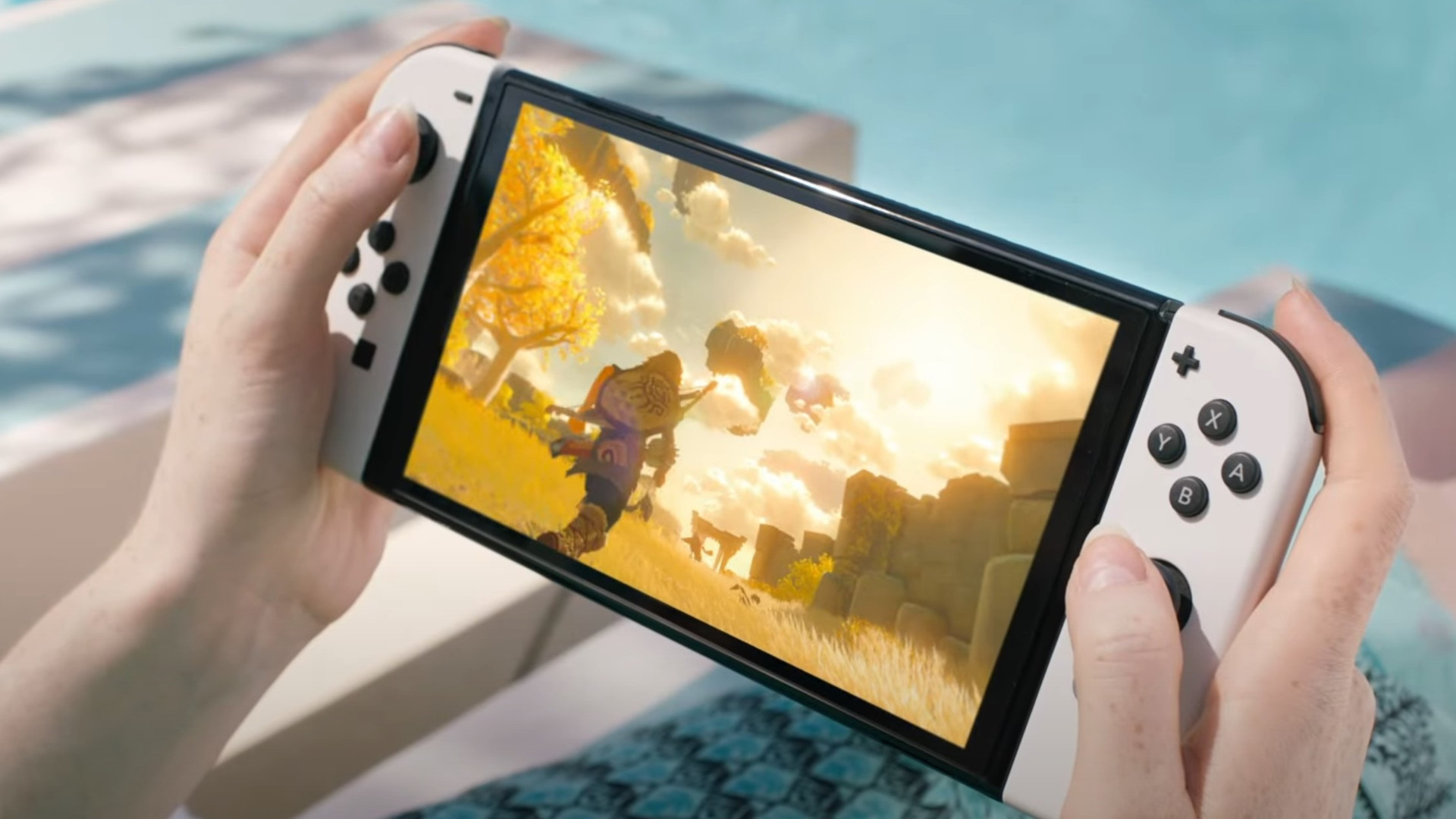Nintendo Switch finally gets Bluetooth audio, but it may be flaky
And Nintendo has flagged some limitations

Sign up for breaking news, reviews, opinion, top tech deals, and more.
You are now subscribed
Your newsletter sign-up was successful
UPDATE: we've spent a bit of time testing the new feature and found some headphones seem to work better than others – see 'How does it actually perform?' below for further details. Our original story continues below.
Nintendo has revealed its ultra popular Switch lineup of convertible gaming consoles are finally getting a feature that fans have been begging for since its launch in 2017 – Bluetooth audio support.
The surprise announcement came from Nintendo of America's Twitter account, stating that a firmware update (version 13.0.0) that adds the feature is available to download right now.
Both the standard Nintendo Switch and the Switch Lite are supported, and presumably the upcoming Switch OLED as well – although there's no explicit confirmation of that yet.
The latest #NintendoSwitch update is now available, including the ability to pair Bluetooth devices for audio output.For more information, including restrictions on some features while using Bluetooth Audio, please visit the support page: https://t.co/vzAB6lZTDu pic.twitter.com/6J5xcDl5kUSeptember 15, 2021
The tweet also hints at 'restrictions on some features' while using Bluetooth audio, and points to a support page for further details.
These limitations include an upper limit of two wireless controllers being paired while Bluetooth audio is in use at any one time, and only one Bluetooth audio device can be paired at any one time (although up to 10 can be saved for quick pairing).
For gamers that use the Switch for multiplayer gaming, Bluetooth won't work during local wireless multiplayer games, and Bluetooth microphones for communication aren't supported at all.
Sign up for breaking news, reviews, opinion, top tech deals, and more.
The process for pairing is, in classic Nintendo style, remarkably simple – a new menu item titled 'Bluetooth Audio' appears in the Switch's settings menu, from which you simply need to hit 'add device' and run through the motions to pair.
Bluetooth and lag
One last limitation listed in Nintendo's support page mentions that you "may experience audio latency depending on your Bluetooth device". This has been one of the core issues with using Bluetooth for gaming in the past, as the technology is known for producing a slight delay when delivering audio from one device to another.
As Bluetooth standards have improved, that latency has been slowly getting reduced, and there are now a variety of clever tricks that help keep the size of transmitted information low (compression, for one) while improving the capability of the connection itself, although it doesn't solve the issue altogether.
While direct Bluetooth audio support isn't necessarily a standard feature for consoles – both the Xbox Series X and PlayStation 5 lack it, for instance – these systems tend to offer low-latency alternatives, such as dedicated headsets or the ability to plug headphones directly into the controller (both features the Switch also lacks).
How does it actually perform?
The team at TechRadar have been testing out the new Bluetooth audio support on our Switch consoles (tested in handheld mode), and unfortunately it's not all peachy.
We found that the over-ear Sony WH-1000XM4 headphones sounded great, while the Sony WF-1000XM4 true wireless earbuds had a persistent crackle and heavily filtered audio signal.
A similar pattern was found when comparing the Beats Solo Pro with the Beats Studio Buds, with the former over-ear units sounding solid but the true wireless buds offering flaky performance.
In both instances, the true wireless models actually had more recent versions of Bluetooth (5.2 compared with 5.0), so it may annoyingly be an issue with newer headphones. Alternatively, the issue may stem from the fact that the left and right earpieces for true wireless earbuds are either paired together wirelessly, or each require a direct connection to the host device.
If it's the latter, perhaps the Switch's limitation of only being able to connect to a single Bluetooth audio device means that true wireless earbuds are simply not compatible. We're sure that the situation will become clearer as more people try the feature, but we'll have to wait and see if Nintendo addresses this more explicitly.
In all cases, the latency was rather similar, with something in the realm of half a second lag between control input and the associated sound being delivered to our ears.
This level of latency is probably passable for many gamers and games – we found it untroubling in Skyrim, for instance – but when trying out the fast-paced rogue-lite Dead Cells, the delay in the timing made some of the hairier moments especially chaotic and disorientating.
